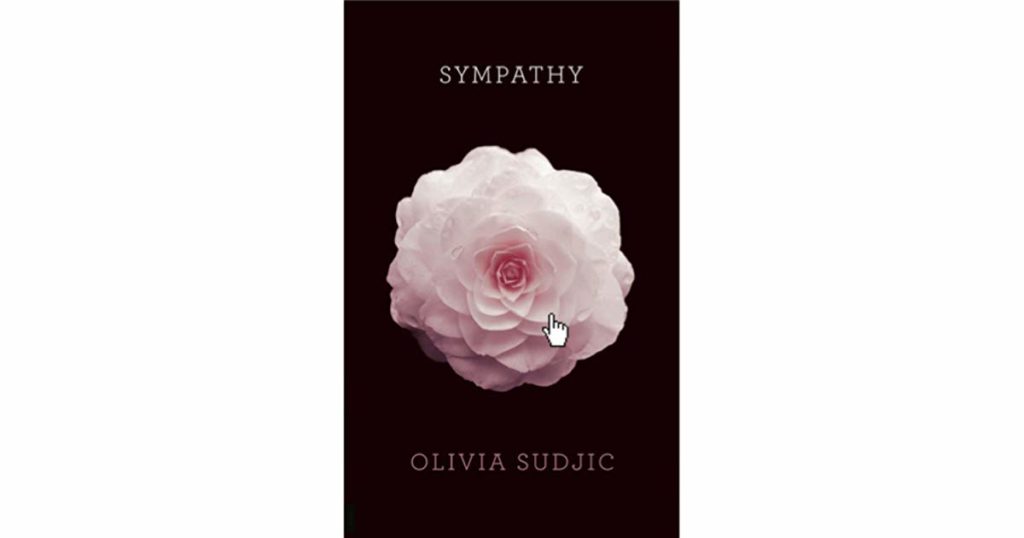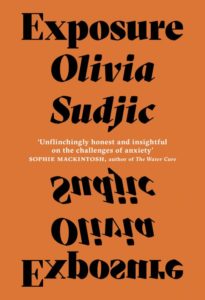The day I met Olivia Sudjic, shortly after the publication of her first novel, Sympathy, she posted a series of handwritten quotations by Olivia Laing, one of which read:
As with the city itself, the promise of the internet is contact. It seems to offer an antidote to loneliness, trumping even the most utopian urban environment by enabling strangers to develop relationships along shared lines of interest, no matter how shy or isolated they might be in their own physical lives. But proximity, as city dwellers know, does not necessarily mean intimacy. Access to other people is not by itself enough to dispel the gloom of internal isolation.
I tapped the outline of a heart under the one of the photos, turning it pink.
That evening, at a reading of hers in London, I brought my hardcover copy of Sympathy to the back of the room for her to sign. I was debating whether to tell her I’d been following her for nearly a year.
The prior July, feeling frantic about the nonexistence of the cohesive manuscript I needed to produce to graduate from my MFA program, I turned to my phone for comfort. Scrolling through Instagram’s “Explore” page, I perused thumbnails curated to appeal to my demonstrated interests. Mid-scroll, I spotted a photo of a woman around my age, with a similar hair color to mine. A laptop sat in front of her. Tapping the photo, I read the caption: “SEND [pointing finger emoji + red button emoji] – it’s best to do with eyes closed,” and noticed her handle was “babynovelist” (you can now find her @olivia.sudjic on Instagram). I pressed “Follow” and trawled through her photos. The Algorithm sensed I had a particular interest in her account, so all her posts were promoted to the top of my feed. I didn’t know anyone who had published a novel, and I didn’t know her, but the app highlighted the intersections between our lives and transformed her from a stranger to the person I turned to when I needed to be reminded that living, breathing people—not mythological characters—wrote books, and I could, too. As I stitched together my first-ever full draft, her commentary and snapshots from the writing-life stage which comes after a piece of work leaves the privacy of one’s laptop buoyed me.
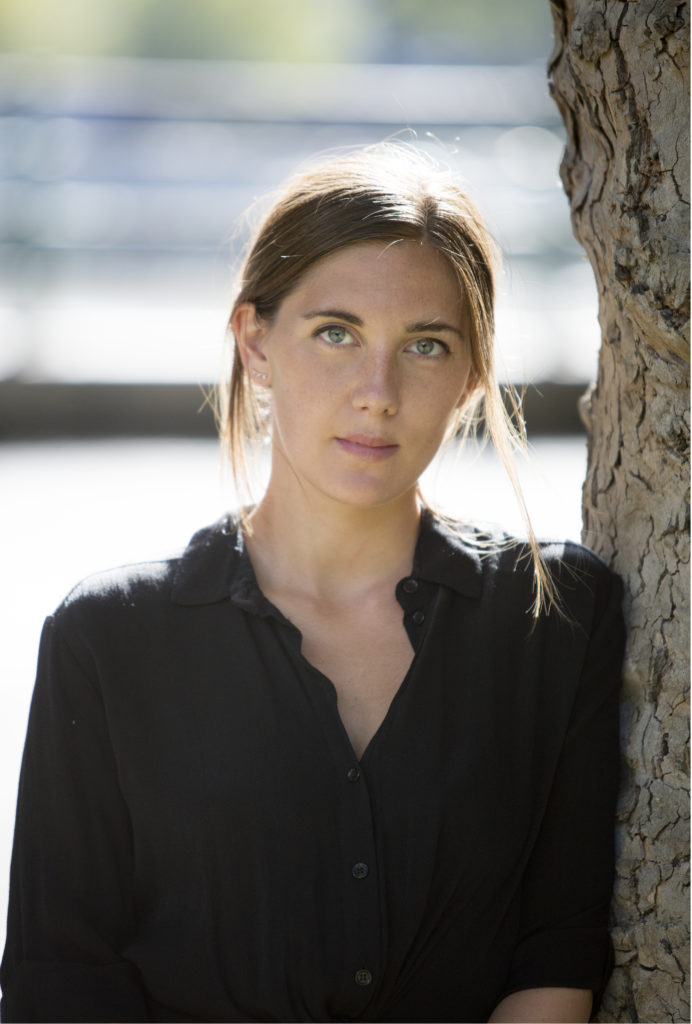
I’ve met writers whose work speaks to something deep inside me, but the intimacy I feel within their pages is replaced by awkwardness whenever I try to convey how, through my connection with it, the art they create becomes enmeshed with my evolving sense of self. I was expecting the same uncomfortable scenario when I introduced myself to Olivia; handing her the book, I noticed my palms had left wet smudges on its black jacket. “I feel awkward saying this, because of the subject matter of your book, but I follow you on Instagram, and your posts have encouraged me as I’ve been working on my own first book,” I stammered. She looked up from her signature and furrowed her brow with care, saying I wasn’t the first person to admit that her story of Alice Hare, a lost young woman who leaves London to find herself in New York and instead becomes obsessively entangled in the life of a female writer she follows on Instagram, had caused them to feel sheepish. She followed my account the next morning, and we met for coffee a few days later.
Once my move from Washington, DC to London became official, we became friends, and I observed the publication of her second book, Exposure, a work that is part personal essay, part literary criticism, at closer range. After she signed a two-book deal with Bloomsbury for her second novel and a collection of essays, I asked her to sit down with me to talk about her work and her writing journey thus far.
Where is your second novel set?
Lots of places. The title, which is Asylum Road, is a real place, which is in Peckham. The idea of the road extends to the fact that there is a series of places in which it’s set. It starts in France, or rather, driving from London to France, then Cornwall, then Croatia, then Montenegro, then Bosnia and back to London, which is where it ends. And all those places are, in some way, connected to me. It’s convenient that they’re close to me, but it’s more to do with the plot that they’re set there. It’s very much a European novel, as opposed to American, which is what the first novel was.
You wrote about New York in Sympathy, and you wrote a bit about Brussels in Exposure. Having grown up in London, I wonder if your writing is tied to cities.
I feel it is quite tied to cities. But that may also be because I feel like I, at the moment, anyway, am writing about—this is an annoying phrase—“modern life.” Even though Asylum Road does, in large part, take place in places that feel like they’re far away from civilization, those places are always in relation to a city. The main character feels like she’s getting further and further away from urban civilization, and closer to a kind of anti-civilization, which the book doesn’t characterize as negative, but which she sees as negative. Sympathy, Exposure and, in the sense I just described, Asylum Road, are all very much about cities. A year or two after Asylum Road comes out, I’ve got another book coming out, which will be a nonfiction collection of essays, called Desire Lines. That’s also going to be a lot about cities. I’m going to speak about Jane Jacobs in that, and the feminist geographer Doreen Massey. So, all four of them, in some way, have cities, I guess as metaphor for people and connection. And also, technology, at their heart. I think, yes, that is largely because I think of myself as a city person. The school I went to in London is called “City of London,” and it’s inside the Barbican, inside the Roman wall. I love rural environments, but I can’t imagine moving out of a city. I enjoy people-watching, walking, that kind of flâneuse-sort of style. I don’t think I could write without that café-starting point, and the sight of life passing by me. I can’t imagine being able to start an idea—although, maybe that’s not true, and if I were to move to the country I’d start writing completely different types of books.
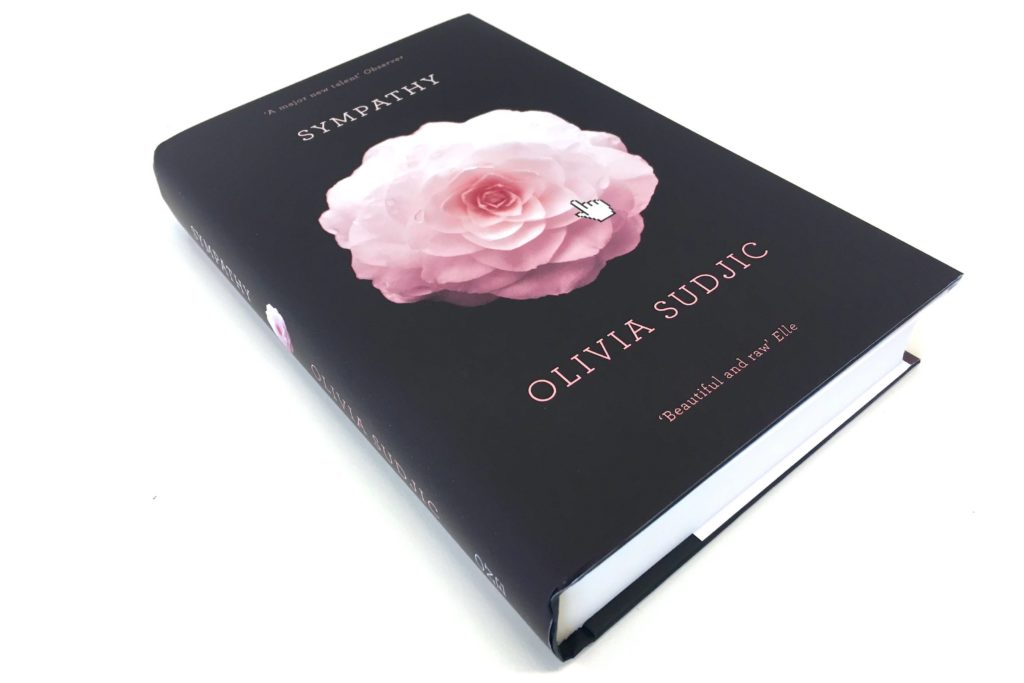
You mentioned technology. Some of the promotional content for Sympathy noted you were born the same year as the Internet. I wonder how much of your interest in tech is due to its pervasiveness in our lives today and how much is tied to this origin story. Did you pay attention to its evolution as you grew up alongside it, or is it something you pay more attention to now?
I think the evolution alongside the Internet was an afterthought, and it came because I had one of those belated feelings of “I have not been paying attention.” I felt like something crept up on me, in the way that an addiction, or whatever it might be, takes shape without you realizing it’s happening, or maybe with you thinking you’re in control, with it just seeming like such a normal part of your life that you don’t notice it. And what it felt like, when I first did start thinking about it, which was way before I started writing—it was when I still worked as a consultant in a branding agency which put technology very much at its center. In fact, my boss at the time now works at Apple, and I remember him saying things like “technology is a force for good,” and this was 2013. I left in 2014, but I remember writing this blog for the company, which was based on this sudden realization I kept having, that we’ve grown up on this technology, and we’re probably the last generation that has the space for critical thought about it, having not lived with it always. I’m not saying that younger generations don’t have the capacity for critical thought, but theirs is within the frame of the Internet having existed way before them. They’re being born into it, whereas, I vividly remember the first time we tried the dial-up. That modem sound, and, you know, you could only have one person using it at a time, and if someone called you, they couldn’t get through. All that stuff. I remember the difference before and after. Just. I think then, it was all “techno-utopia.” It was the idea that this was going to always be a force for good, as my boss described it. The novel wasn’t supposed to be about technology, but because it kept being this intrusive force, distracting me—also, every time I tried to write a plot, I was like, “well, a phone would ruin this.” In the end, I thought, “this thing I keep bumping up against will have to become my subject.”
Was it a conscious decision to bring the idea of sympathy powder from the 17th century into the present?
It must have been, at one point, a conscious decision. When I was in New York, it was still with the aim, in the back of my mind, of writing this historical novel, and then maybe it was going to have a kind of David Mitchell-esque back-and-forth in time, but once I was in New York, the city itself felt so alive, that it felt like ignoring a burning building to not be writing about New York. I also was having that twenty-five-year old quarter-life-crisis, and it just felt like, you know when Rachel Cusk talks about when it just seems like there’s nothing more real than what’s going on in your life at that point? It’s not that you’re writing about your life, but whatever’s going on is almost the kind of garbage that needs to go into the incinerator to then make the work.
I also realized, in the same way I’d been taking the Internet, like oxygen, for granted, that I’d been raised, or educated, according to this white canon of deceased male authors, and I was trying to write like them, in the sense that I kept writing in this voice that didn’t feel like mine; it felt like someone trying to mimic Henry James—no shade to Henry James, but I wasn’t very good at the mime. I read Lydia Davis—I read The End of the Story. I think I really have to credit living female American writers for helping me get past this sort of slightly-uptight British canon thing. I know Henry James was obviously American, but Shakespeare and Shelley and all those kind of writers had me, I think, really constipated, almost. When I read The End of the Story, I was like “Wow,” and the same with Miranda July. Then I was like, “I need to write like I talk,” or “I need to write like my life is like,” and that’s how you are a Henry James or a Shakespeare, because you’re translating what’s real. And that, maybe, becomes—I mean, not in my case, maybe, but timeless. Or universal, whatever the word you want to choose in terms of what makes it great, as well as contemporary.
I got from sympathy powder to technology because I felt like sympathy powder, which is essentially like magic, voodoo-style stuff. I felt very much like “technology is magic.” The idea that we all have a phone in our pocket that can connect to anyone, anywhere, and elicit these responses, is like voodoo. I had one of those gut-punch moments where I was like “oh, this is my idea.” You know, you just get that feeling. That often happens, I think, bringing together two unlike things and rubbing them together. And yeah, I think the combination of New York, stuff that was getting in the way and Lydia Davis is sort of where it came from.
At the reading where we met, you said you wished you could tell your former self—the version of yourself who was writing anonymously, or nearly-anonymously, to savor that period, because there would never again be a time in which you could write without the weight of external pressure and expectation. What else would you want to tell that version of yourself?
“Only write for one person.” When I was writing Sympathy, one of the things that might have made it a better book is if I’d narrowed my audience mentally. Not that I was thinking “everyone’s going to read this,” but my thought was “anyone could read this, and who am I to say what type of book this should be? I am just its author. I want to please as many people as possible and attract as many”—I guess editors—I don’t think I really knew what the word for them was. I now know they’re editors. In my mind, I was just like, “People. People who will read this and decide whether it is good.” And that was a mistake. I think it was the equivalent of doing one of those makeup tutorials, but with eight different looks. So, a bit of a smoky eye, and then a nude lip and also vamp.
I think if I’d had a mentor figure—I could have chosen Lydia Davis, even, if there was no one real or no one with any kind of proximity to me that I could have as a mentor. I could have chosen someone like Lydia Davis—“What would she think of this sentence? What would she make of this plot? I trust her taste.” And if I’d just narrowed my focus like that, it would have been more confident. And I think that’s why things like creative writing MAs or MFAs are so valuable, because they can give you that kind of thing. Equally, you know, you can also think of an enemy—what would this awful person think? But I just think that writing anything for a committee is a bad idea, because it will inevitably either be a bit messy or seem hesitant, or you’ll notice the cracks where you plastered over between the different styles.
What would you say to the version of yourself who was at the residency last year, which you wrote about in Exposure?
“It’s gonna be ok.” I went on that residency just after a breakup. Sympathy was also written after a breakup, but then I’d quit my job, so it wasn’t like I was tied to a desk suddenly. But with the residency, I was like “this is a thing I’m supposed to do,” and you know what it’s like when you go through a breakup—having some task you’re supposed to fulfill—obviously, it can be helpful if it’s this totally transporting thing. If I’d been knitting, it might have been great. Or running, or learning about 16th century Chinese ceramics—but I’m mining my emotional life, trying to write a novel. This way predates the relationship, but the novel is about the break-up of a relationship, so whatever it had been about, mining my life for a novel, at that point, was really difficult. So, I think I would have gone back and said “stop trying. You’re going to turn this into something useful. Don’t worry—this will be productive, but it won’t be what you think it is.” Because at the time, I wasn’t there with the purpose of writing Exposure at all. It was finishing a novel. And I didn’t do any—well, I wrote some words, and I don’t know where they’ve gone.
I vividly remember what I was doing at my first set of proper public exams when I was fifteen, and my teacher at school was just insisting—her constant refrain was “Stop, put your pen down, pat the dog.” We were like, “Oh, shut up, you don’t want us to stop working. This school just wants good exam results, and no one’s going to get those from stopping working.” But I now see pretty much all my most productive times as being when I’m the most stressed about getting that thing done, and being completely fallow, and that then becomes something. Again, it’s like with the Sympathy thing, pick the subject that you find the most difficult—the thing that’s getting in your way, the thing that’s stopping you from writing—and that, in some way, is connected to what your next project is going to be. It’s your research time; it’s your composting time. So, do stress, but don’t stress that much.
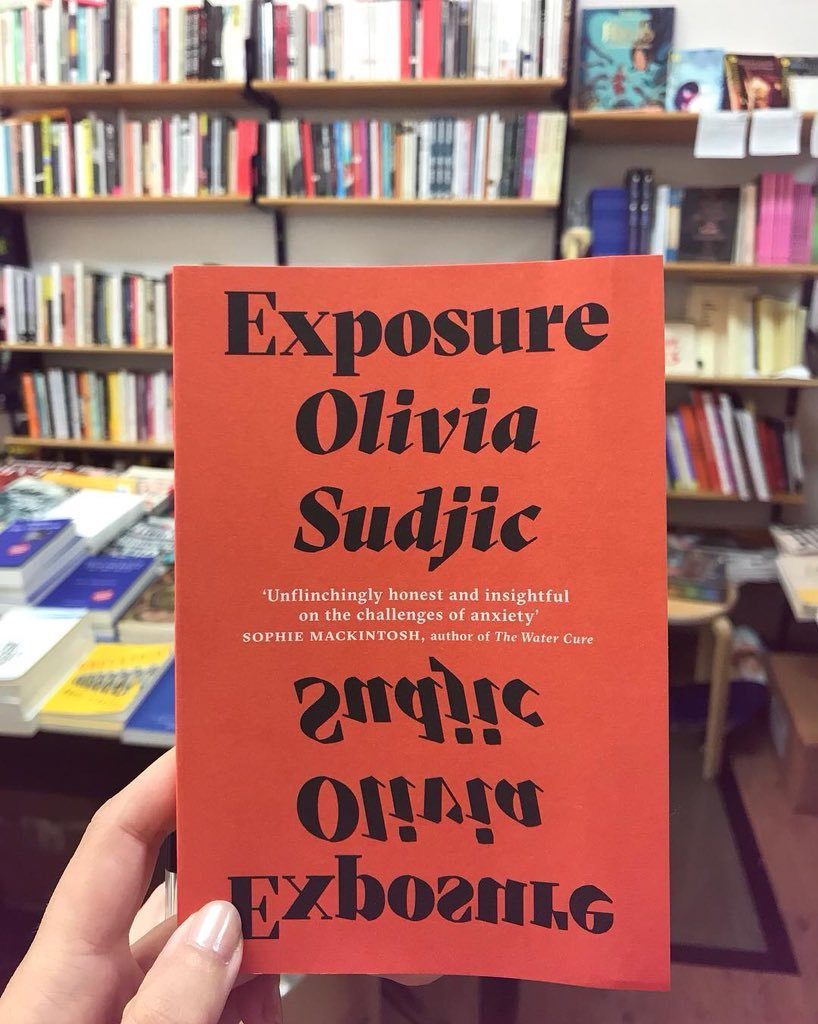
I was listening to an interview with Zadie Smith, and she said that when she looks back on her work thus far, she thinks it was “always about a recognition of limits.” Would you say there’s one subject you’re trying to work out, or a question you’re trying to answer through your work? Is there a main thing you hope readers will take away from your work?
Slightly as a side point about the limits thing, I think that was with Sympathy—the limits of human connection. The stuff I was reading at the time, or just afterwards, like Claudia Rankine’s Racial Imaginary, where she talks about the limits of the imagination—I felt very much like I was on the edge of things I understood. I write novels because I want to find the kind of known unknowns.
Going back to your question about whether I think there’s a central question in my work—I finally saw (the theatre adaptation of) My Name is Lucy Barton. In that, which I also remember from the book, she talks about everyone having just one story, and that’s okay, and that’s a piece of advice she gets from a writer she admires. Obviously, it would be quite grand of me to talk about “my body of work,” but there’s Sympathy, Exposure, Asylum Road and there will be Desire Lines. In all of those, there are themes. But I’m almost too scared to actually pinpoint what they are. It’s so crazy I’m prepared to put this stuff out there when I think about it too hard, because I’m like, “Would I want my therapy sessions made public? No.” Obviously by having all these characters and by having all these different plots and locations, you feel like you’re exploring totally different ideas. But I guess if I write enough novels, it will become increasingly clear that there are these primary concerns, which—I’m not saying they’re that literal, in the way that dreams maybe aren’t that literal, but they’re kind of almost legible only to me. If I were to describe them to someone else, they would sound so universal. Fear of abandonment and losing intimacy, and feeling atomized. I won’t go on, because I still can’t name it. If I had the words for what it was, I wouldn’t be writing the novels. But I do see it. I just can’t name it.
Which also reminds me of the Rachel Cusk bit where she writes plays, and after that violent mugging, she basically can only sum things up. And she’s like, “once I’ve summed it up, it’s dead.” And so, when she gets to the point where she can sum up her friend, with “friend,” she’s like, “I can’t see that person anymore. It’s over.” And the play she’s been working on for years is just about “revenge,” or “jealousy.” And then, you’re done.
Olivia Sudjic is a writer living in London. Her work has appeared in publications including The New York Times, Paris Review, Financial Times, Sunday Times, Guardian, Observer, Vogue
